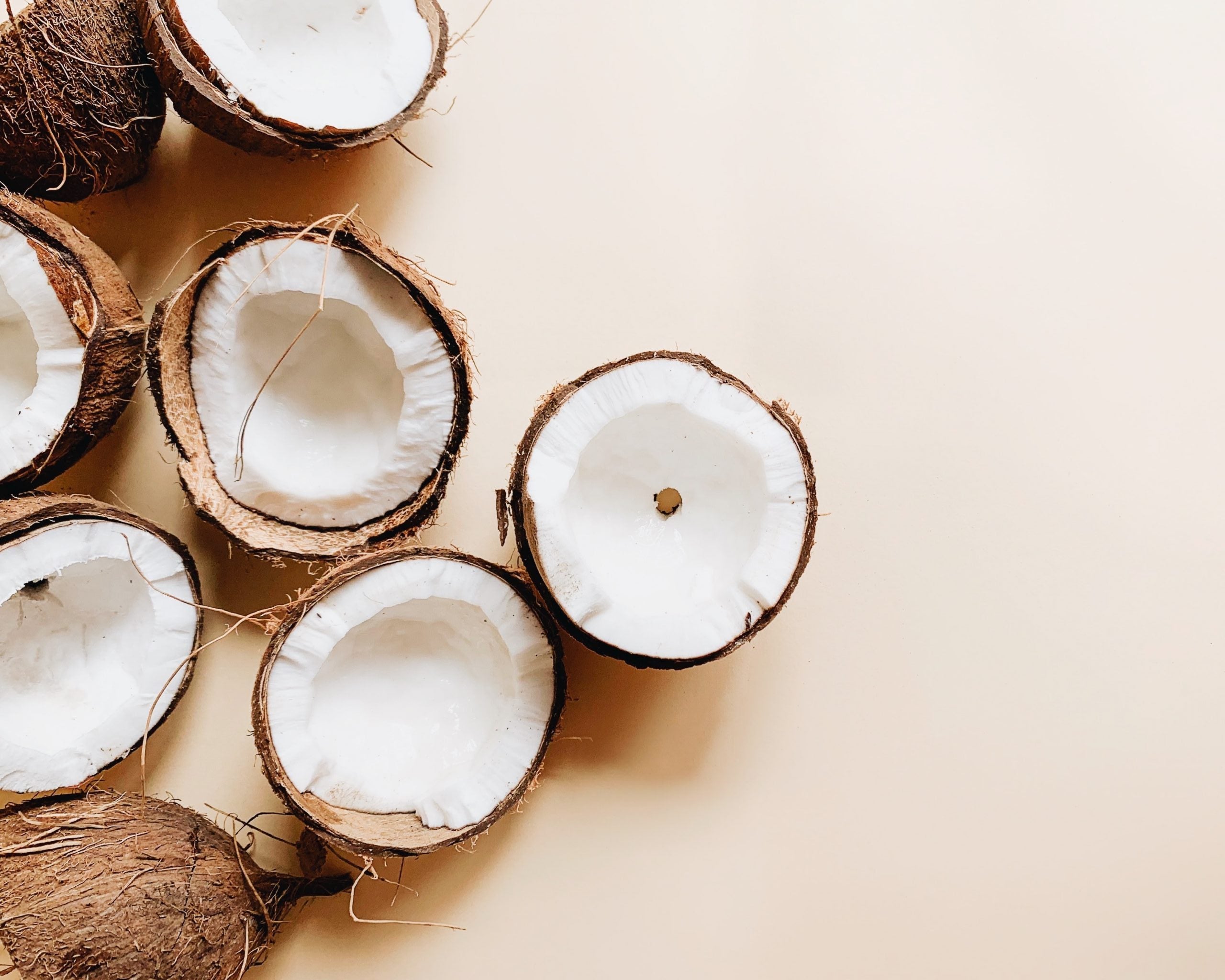Should You Worry About Saturated Fat in Coconut?

(Photo: Irene Kredenets on Unsplash)
No, you don’t have to be concerned with high levels of saturated fat in plant foods—as long as you watch your portions. According to the American Heart Association, a diet high in saturated fat from any source can raise LDL (bad) cholesterol levels in our blood, which increases the risk of heart disease. For a healthy heart, the AHA recommends we limit our daily intake of saturated fat to less than 7 percent of total calories. This means if you eat 2,000 calories a day, you should limit your daily intake to under 16 grams of saturated fat.
The standard American diet is high in saturated fat from meat, cheese, dairy-based desserts (such as ice cream), butter, and baked goods made with butter. For plant-based eaters, saturated fat primarily comes from coconut, cocoa butter (chocolate), and palm kernel oil.
The jury is still out on whether saturated fat from animals is worse than that found in plants. One plant-based saturated fat getting lots of attention is coconut oil. There’s evidence that lauric acid—a medium-chain fatty acid found in coconut oil—raises HDL (good) cholesterol levels and may boost the immune system by activating protective white blood cells. Still, the most widely accepted advice for keeping your heart healthy is to use coconut oil and other saturated fats sparingly.
Tip: Extra virgin/unrefined coconut oil can be heated to only 280°F, so reserve it for light sautéing or creating salad dressings. Refined coconut oil is a better option for cooking because it can tolerate temperatures up to 365°F.
About our expert
Health-food junkie Dawn Jackson Blatner, RDN, CSSD, LDN, is creator of the weekly e-newsletter Nutrition WOW and author of The Flexitarian Diet.